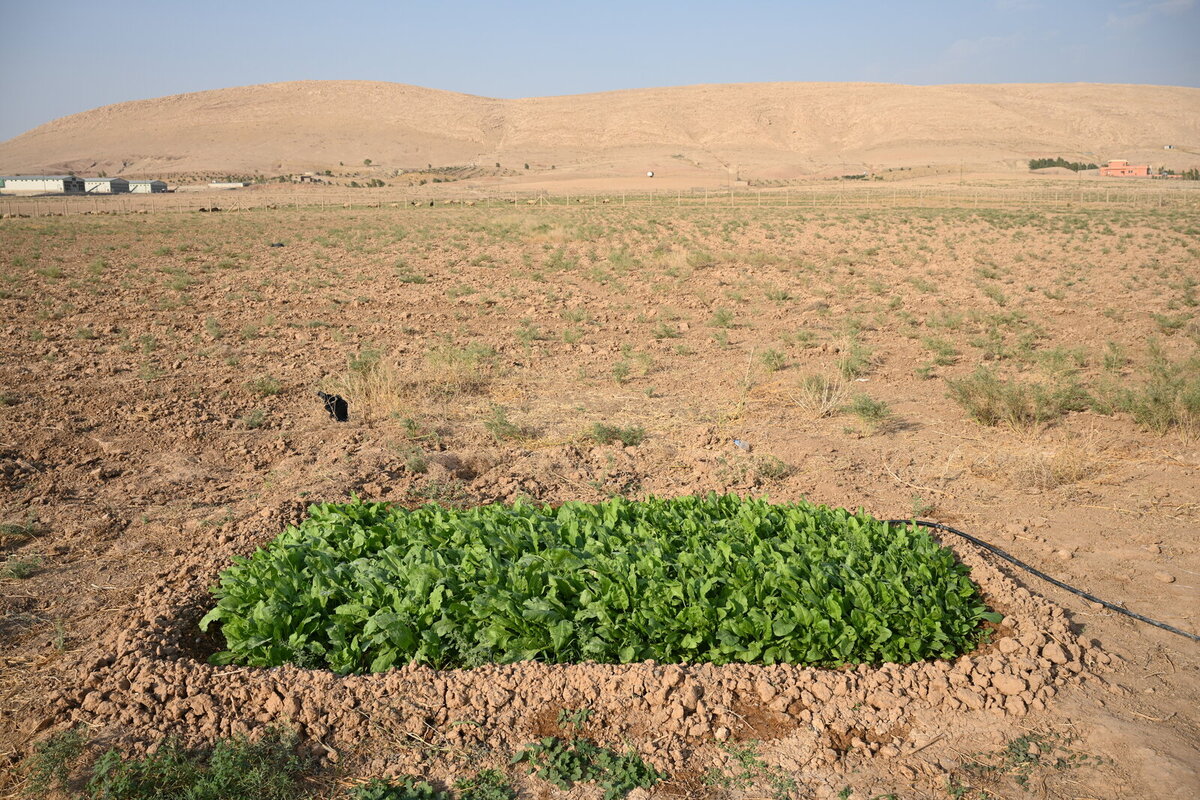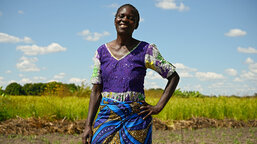The temperature of our planet has already risen by 1.1ºC compared to pre-industrial times. This change is significantly affecting communities in poor regions. Whether it is farmers starving due to crop failure or people becoming homeless by hurricanes and floods, climate change is having a major impact on their quality of life. More than 100 million people around the world are currently dependent on humanitarian assistance due to disasters or loss of livelihoods caused by climate change.
Climate change is taking away people's livelihoods
Agriculture is the source of livelihood for two-thirds of the population in developing countries. Until recently, thanks to agriculture they were able to make a living without any problems. Sudden natural disasters and gradual climate change often make this impossible.
Many farmers rely on rainfall to irrigate their crops. However, due to climate change, rain is either insufficient or comes at unusual times. Water shortages deprive millions of people of their livelihoods every year.
A changing climate is damaging human health
Food shortages and poverty go hand in hand with poorer health. Communities facing crop failures are at risk of malnutrition and diseases associated with unbalanced diets.
Climate change is also behind drinking water shortages. Due to low rainfall and natural disasters that destroy water infrastructure, people in affected areas are dependent on drinking dirty water. This water causes diseases such as diarrhoea and cholera, which are dangerous to human health and even fatal for children.
Natural disasters drive people from their homes
The number of natural disasters has almost tripled since 1980. An average of 20 million people a year have to leave their homes because of them.
Natural disasters such as floods, storms, wildfires and extreme weather are closely linked to climate change and are increasing in frequency and intensity with climate change. Natural disasters deprive affected people of everything and force them to leave their destroyed homes. They often become homeless and refugees with no resources of their own. Many find shelter in refugee camps or in makeshift accommodation in cities.
The so-called climate refugees are also forced to flee by the lack of drinking water or the loss of livelihoods after the extinction of livestock, or the lack of crops due to a new pest. Rising sea levels and melting glaciers caused by global warming currently pose a threat to 260 million people.
Extreme weather is killing
Unmanageable heat is one of the most visible areas of climate change with which even people in normally milder climates are alerted to our planet's rising temperatures each year. In 2022 alone, more than 15,000 people succumbed to the heat. Globally, heat has caused more than 160,000 deaths since 2000.
But extreme heat is just one of the causes of deaths caused by climate change. According to the World Health Organization, climate change will be behind an additional 250,000 deaths from malnutrition, disease and extreme heat by 2050.
Climate change deepens inequalities
Climate change is dramatically changing the lives of people who depend on the stability of their local climate. But what are the impacts of climate change on those already living in harsh conditions, poverty or hunger?
The environmental crisis acts as a so-called 'threat multiplier'. If people are already in a critical socio-economic situation, a natural disaster or a prolonged crop failure can be devastating for them. In addition, because of poverty, people are often at risk of exploitation or trafficking, living in refugee camps and makeshift shelters, and generally poorer living conditions.
Because of their already poor situation, people from disadvantaged groups suffer many times more from the effects of climate change. They find it difficult, if not impossible, to adapt to a new environment or start a new life in a new place. Climate change and forced displacement leave them trapped in a hopeless situation.
Caritas helps people adapt to climate change
As in other developing countries, people in Zambia are paying the price for climate change by losing their livelihoods. Caritas Czech Republic is helping local farmers adapt to climate change. Thanks to our initiative, farmers in poor regions of Zambia have gained access to important climate information and learned how to grow resilient crops.
In addition to supporting agriculture, Caritas Czech Republic teaches people in disadvantaged regions how to have a varied diet and thus prevent malnutrition in children. For example, we train community volunteers who visit their communities and show people how to eat a balanced diet, but also check how their children are developing and whether they are at risk of malnutrition.
At Caritas Czech Republic we will continue to protect the environment and assist people who are suffering from drastic changes. If you want to fight climate change with us, you can use our tips on how to protect the environment.













